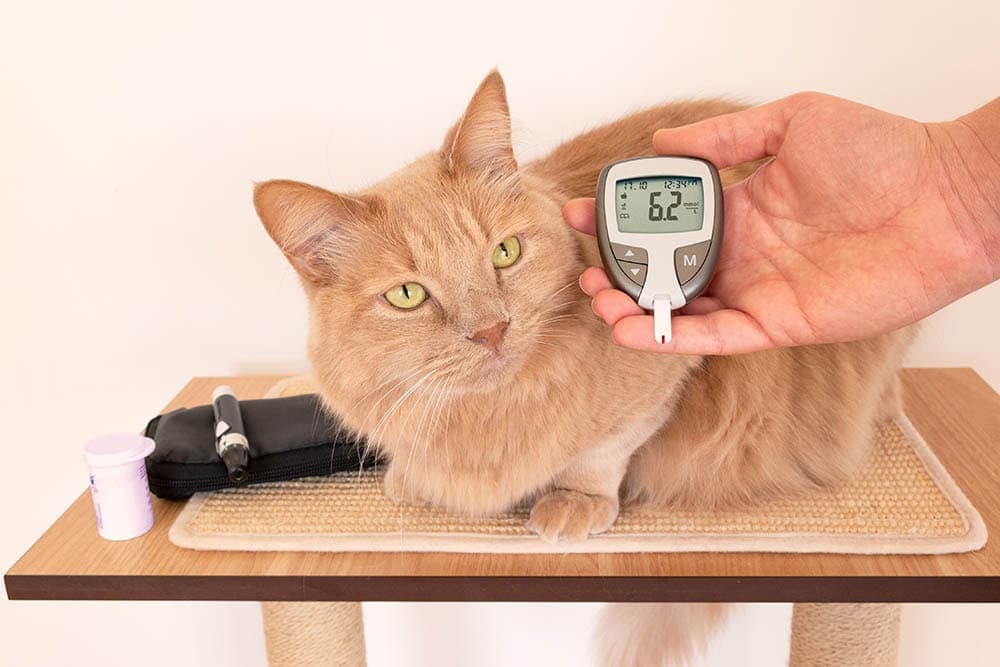How Long Do Siamese Cats Live? Average Lifespan, Data & Care
Updated on

Click to Skip Ahead
If you have a Siamese cat, you’ve probably found yourself asking quite a few questions about them over the years, things like, “Why do they insist on knocking all my stuff off the table?” and “Why do they insist on demanding attention at 2 a.m.?”
There’s another, more serious question that you’ve likely asked as well: How long will my Siamese cat live? The answer, on average, is anywhere between 12 and 20 years.
That’s the short answer. The long answer is a bit more complicated than that. We break it down for you in more detail in this article.
What is the Life Expectancy of a Siamese Cat?
The average Siamese cat will live somewhere between 12 and 20 years. However, 12 years is definitely on the low end, as many of these cats reach 15, and a surprising number live well past 20. At one point, the oldest living cat in the world was a Siamese named Scooter, who lived to the ripe old age of 30, so these cats definitely have longevity to them.
The hardy genes that enable Siamese cats to live so long are shared with their cousins, the Balinese and Burmese. These two breeds are also among the longest-lived cats, and they often live to 20 and beyond.
How Can You Extend the Life Expectancy of Your Siamese Cat?
In terms of the biggest impact on a cat’s lifespan, the three biggest things that you can do are to feed your cat a healthy diet, keep them indoors, and take them to the vet for regular checkups.
Proper nutrition is the cornerstone of a long life for just about any animal, and Siamese cats are no exception. You should feed them the highest-quality food that you can, which means plenty of protein and limited carbs. It’s also essential that you keep their weight under control, as obese cats don’t live nearly as long as their thinner counterparts.
Keeping them indoors is also essential. Too many things can kill them outside, with cars being the number-one culprit. They’re also more susceptible to diseases, parasites, and poisons, all of which can increase their mortality risk. All in all, cats who stay indoors can live anywhere from three to seven times as long as those allowed to roam around outside.
The final piece of the puzzle is regular vet visits. Many people only take their cats to the vet when something’s clearly wrong, which limits how much good the doctor can do. If your vet sees your cat regularly, on the other hand, they can detect life-threatening diseases early, giving your cat much better odds of survival.
There’s another aspect to the vet visit category. This includes things like regular vaccinations, timely spaying or neutering, parasite prevention and treatment, and proper hygiene. Make sure you follow your vet’s recommendations to the letter, as doing so will give your cat the best odds of living a long, happy life.

What Serious Conditions Are Most Common in Siamese Cats?
Part of the reason that you should take your cat to the vet regularly is to get advance notice of any serious conditions that your kitty might be coming down with. While Siamese cats can die from any number of diseases and conditions, the following are the most common.
Lymphoma or Lymphosarcoma
This cancer causes the cat’s body to create abnormal white blood cells called lymphocytes. Since cancer attacks a certain type of cell rather than a body part, it can show up anywhere, but it’s easily detected with a simple blood test (yet another reason for frequent vet visits).
Siamese cats are more prone to this type of cancer than other breeds, but fortunately, it’s treatable, and the cat’s odds of survival are good. The downside is that it’s expensive to treat, and treatment will usually need to last as long as the cat lives.
Thymoma
This is another type of cancer that Siamese cats are prone to contracting. It’s actually a type of lymphoma, but it only occurs in the chest. It’s more likely to affect young cats than older ones, and the cause is believed to be genetic in nature.
Like other forms of lymphoma, this cancer responds well to chemotherapy; however, the odds of lifelong remission are higher with thymoma than with other forms of lymphoma.
Mast Cell Tumors
Mast cell tumors are a form of skin cancer that look like lumps or bumps on the skin, so always get any abnormalities checked out as soon as you can. If your cat has a mast cell tumor, they’ll likely need it removed, and chemotherapy may also be required.
The problem with mast cell tumors is that there are basically two types: slow-spreading tumors that are easy to treat and remove and highly invasive ones that are almost always fatal. All you can do is have your vet remove the tumor, biopsy it, and hope for the best.

Adenocarcinoma
This is a form of intestinal cancer in which the tumor wraps around the intestines like a donut. Symptoms include vomiting, diarrhea, and bloody stool, but early forms of cancer may be completely asymptomatic, so it’s important to have your cat checked regularly.
The vet will likely need to surgically remove the tumor, and your cat’s prognosis will likely depend on how early the tumor was detected and removed.
Lung Infections
For whatever reason, Siamese cats are more prone to respiratory issues than many other cat breeds, and that’s especially true when they’re kittens. These issues aren’t usually fatal, but they can become so if left untreated or if the cat is suffering from other health issues at the same time.
Many Siamese cats need lifelong medication to control their respiratory issues, and some are even issued inhalers to help open their airways and reduce inflammation in their respiratory system.
Dental Disease
While not unique to the breed, as dental disease is a leading cause of death for all cats, Siamese cats are just as susceptible as any other feline to issues caused by poor oral hygiene. A buildup of plaque or tartar in the mouth can lead to infection of the teeth and gums, which may then spread to the rest of the body.
Also, bacteria inside the mouth can cause tooth decay, and if your cat’s teeth fall out, they’ll find it difficult to eat, which can reduce their lifespan significantly. Luckily, this issue is easily prevented — all you have to do is brush your cat’s teeth regularly.
Life Stages of a Siamese Cat
Kitties are born with their eyes sealed shut. While this applies to all kittens, one really unique fact about Siamese cats is that they’re completely white when they are born. They don’t start developing their markings until they’re roughly 4 weeks of age.
By the time you bring home a Siamese, however, they will have their adorable, pointed markings and be full of personality! Most vets recommend that you get your Siamese spayed or neutered before they hit roughly the 4-month mark.
All cats reach sexual maturity between 4 and 6 months of age and complicated behaviors can start as a result. If you don’t get your cat spayed, neutered, females will enter their heat cycles and males will start looking for a mate. This can result in unwanted behavior such as excessive vocalization and marking.
Kittens are generally considered to be adolescents between 6 and 14 months of age, and full-grown around 18 months of age. Once a cat hits 10 years of age, they are considered to be a true senior, but some cats may be considered seniors by veterinarians around 7 years of age depending on their health at this age.

How to Tell Your Siamese Cat’s Age
It can be a little bit difficult to tell the cat’s age once they are fully grown. However, kittens will be small, fuzzy, and adorable.
As they enter their juvenile or adolescent phase, they are becoming sexually mature and changing a bit in terms of personality. They might start to calm down just a hair or divert to other forms of play. At this stage, between roughly 6 months to a year, they will still be developing, but it is a lot slower in progression.
Siamese cats are generally considered medium sized, and they stop growing between the ages of 12 to 18 months. After this point, your Siamese will enter their adult years and it can be difficult to tell the exact age unless you’re familiar with the cat from birth. If you’re unsure of your Siamese’s age, your vet will be the best person to give you an estimate by looking at their teeth and general size, but it may not be exact.
How Long Will Your Siamese Live?
At a certain point, you’ve done all you can do in terms of extending your cat’s lifespan. What’s left is to roll the dice and see how long you’ll have with your little buddy.
Fortunately, with the Siamese breed, the end shouldn’t come anytime soon, as these are some of the hardiest cats on the planet.
Related Reads:
Featured Image Credit: Maximilian Pawlikowsky, Shutterstock













